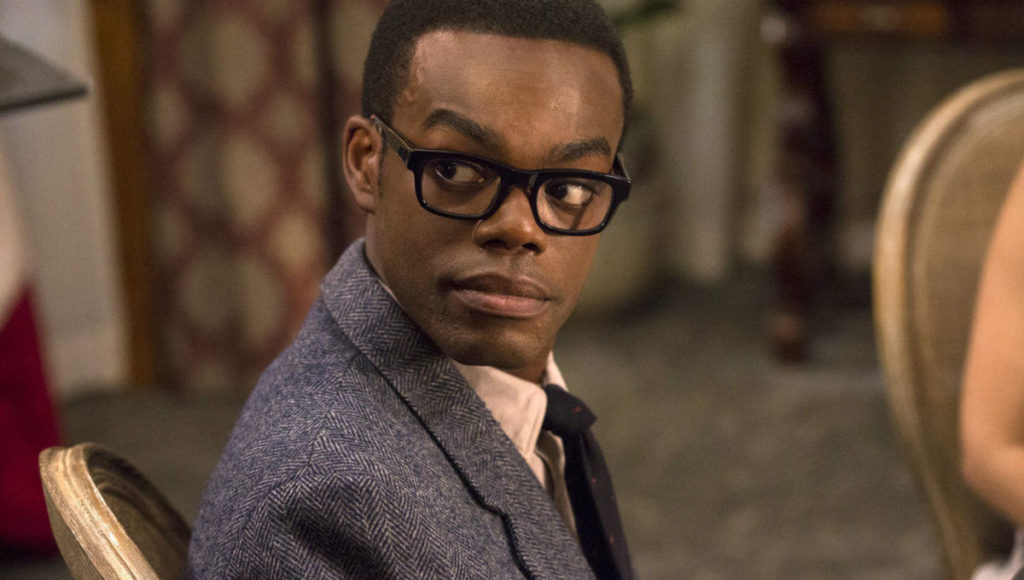
In its four seasons, NBC’s The Good Place was known for throwing in philosophical and cultural references without ever acknowledging them in the narrative. One of these nods in the series finale is especially noticeable for lovers of classical music.
The piece of music is called Spiegel im Spiegel by composer Arvo Pärt. The title loosely translates to “mirror in mirror.” It implies an infinity mirror – when two mirrors are held facing each other and the repetition seems to go on forever. While the show used a version with cello and piano, the piece is often reinterpreted for a number of different instrumental combinations. On 91Classical you often hear a version performed by percussionist Kuniko Kaito.
Show creator Michael Schur said in The Good Place: The Podcast that he listened to the piece while he wrote the series finale, allowing it and a view of the ocean in Malibu to set the scene. Spiegel im Spiegel is minimalist, with repetition of the notes in what Pärt calls his “tintinnabuli” style, in which one voice arpeggiates and the other moves diatonically. But repetition abounds in Spiegel, like the infinity mirror – reflecting itself, then reflecting the reflection.
This is what makes it absolutely perfect for the story that Chidi tells Eleanor in this moving scene from the show.
Note: DO NOT READ any further if you have not yet watched the series finale of The Good Place and don’t want to be spoiled.
As Chidi describes to Eleanor, the wave returns to the ocean. Some are bigger, some are smaller, but they are all water. But indeed it is reflected in every wave that comes after. Because the next wave is then also influenced.
In the final season Chidi’s knowledge of philosophy is put to a very real test: proposing a solution to an unjust afterlife system. And after a lifetime and many after-lifetimes of anxiety and indecision, Chidi rises to the occasion with an unexpected confidence.
Because of his work, along with his friends’ compassion and practical nature, all of humanity becomes a reflection of Chidi’s good intentions. Until the human in the afterlife decides it’s time, and their existence ends. As we learn later, in this moment their essence is spread into the universe – an essence that is good, thanks to Chidi and his friends’ efforts.
Chidi Anagonye’s existence, by his ending, was an infinity mirror of goodness.
Early in his career Pärt’s compositions were influenced by late neo-classicists like Prokofiev and Shostakovich – all of whom, like Pärt in his native Estonia, had to dodge Soviet censorship. Eventually he explored serialism, similar to Schoenberg. You hear a very different compositional style from Spiegel in this piece for piano – Partita, Op. 2.
In the late 1960s, as the cold war led to increased tensions worldwide, Pärt began to despair, according to his biographer, Paul Hilier. Hilier suggests that this led to a withdrawal as Pärt couldn’t write a single note.
Likewise Chidi was paralyzed in his own work on his dissertation. Not by world politics, but by indecision. Always trying to find “the answer” to everything, young Chidi became convinced that every scenario has a “right” answer. But, life is rarely so clear. While a very young bespectacled Chidi with a blackboard was able to convince his parents to save their marriage, every single day of his life thereafter was frozen by indecision – right up until his very last moment. Standing on a sidewalk while deciding about where to have a drink left him in the path of a falling air conditioner.
Pärt found clarity in the end. After a break from composing, in which he studied early music – specifically medieval and renaissance choral works, he began to use tintinnabuli in Für Alina, and even a piece titled with a nod to philosophy – Tabula Rasa. And of course the piece whose flexibility and meditative nature have been a phenomenon for years, Spiegel im Spiegel. Michael Schur described his research on the piece as illuminating. He found performances of the piece on YouTube and noticed that the comments, unusually for the site, were universally positive. In Spiegel im Spiegel, he had found an internet-based “good place.”

Kristin Bell as Eleanor Shellstrop with William Jackson Harper as Chidi AnagonyeColleen HayesNBC Universal
Chidi found his true north in the form of Eleanor Shellstrop, and along with it a sense of mission: to save humanity by fixing the afterlife. And eventually, after many “Jeremy Bearimies” in the new growth-based system, he was able to rest in the sure and peaceful knowledge that the time for the end of his existence had come. And as with the waves of the ocean and the ringing tintinnabuli, only the reflection needed to remain.